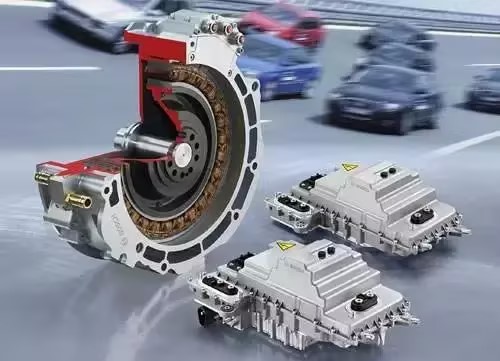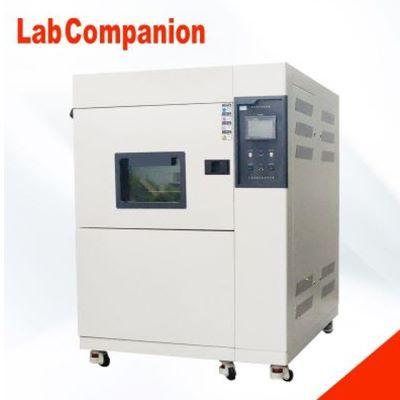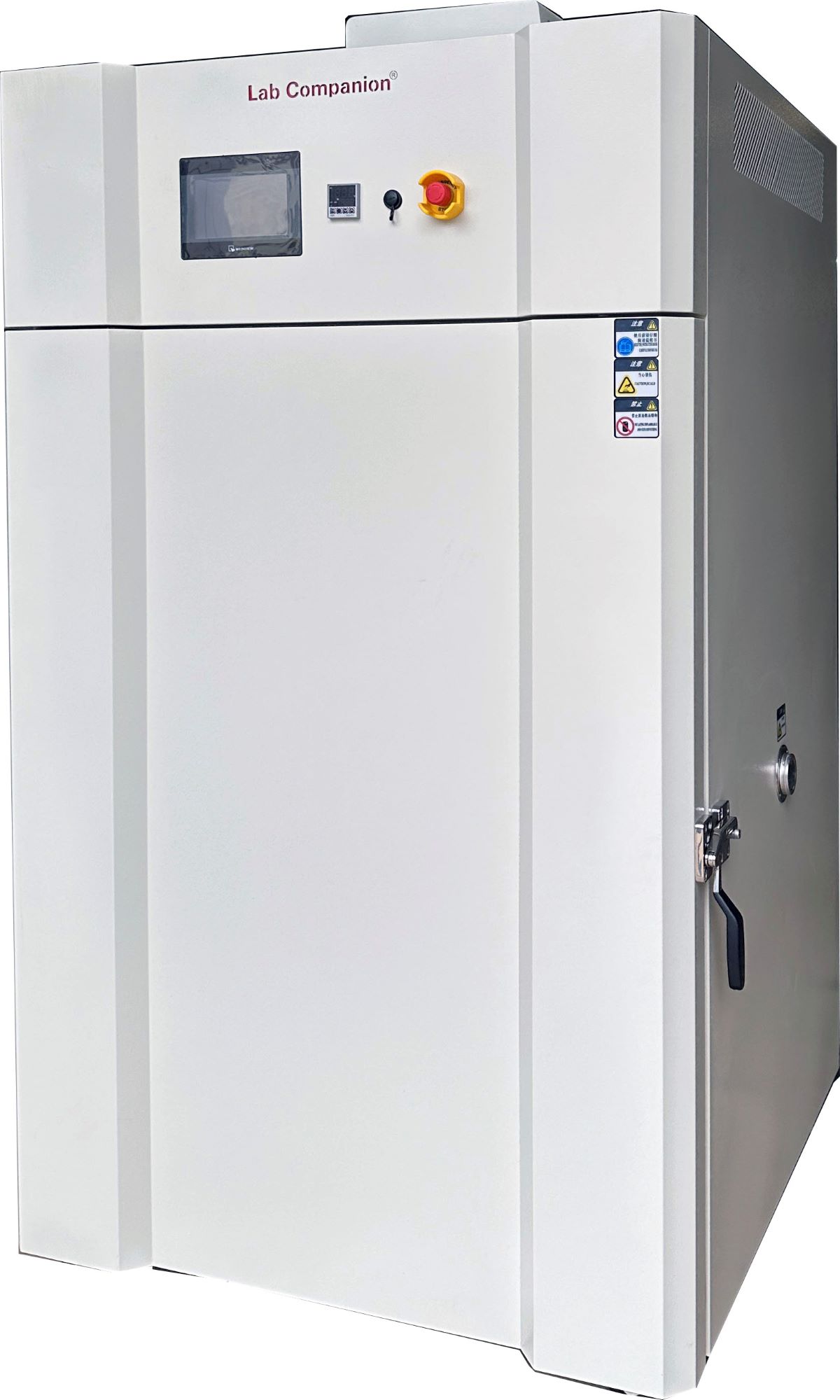Envoyez-nous un email :
info@labcompanion.cn-

-

Demander un appel :
+86 18688888286
AEC-Q100 - Mécanisme de défaillance basé sur la certification des tests de résistance des circuits intégrés
Avec les progrès de la technologie électronique automobile, il existe de nombreux systèmes de contrôle de gestion de données complexes dans les voitures d'aujourd'hui, et via de nombreux circuits indépendants, pour transmettre les signaux requis entre chaque module, le système à l'intérieur de la voiture ressemble à « l'architecture maître-esclave » de le réseau informatique, dans l'unité de commande principale et chaque module périphérique, les pièces électroniques automobiles sont divisées en trois catégories. Y compris les circuits intégrés, les semi-conducteurs discrets et les composants passifs, trois catégories, afin de garantir que ces composants électroniques automobiles répondent aux normes les plus élevées de l'anquan automobile, l'American Automotive Electronics Association (AEC, The Automotive Electronics Council est un ensemble de normes [AEC-Q100] conçu pour les pièces actives [microcontrôleurs et circuits intégrés...] et [[AEC-Q200] conçu pour les composants passifs, qui spécifie la qualité et la fiabilité du produit qui doivent être atteintes pour les pièces passives. Aec-q100 est la norme de test de fiabilité des véhicules formulée. par l'organisation AEC, qui constitue une entrée importante pour les fabricants de 3C et de circuits intégrés dans le module d'usine automobile internationale, et également une technologie importante pour améliorer la qualité de fiabilité des circuits intégrés de Taiwan. De plus, l'usine automobile internationale a passé la norme anquan (ISO). -26262). AEC-Q100 est l’exigence de base pour réussir cette norme.

Liste des pièces électroniques automobiles requises pour passer l'AECQ-100 :
Mémoire jetable automobile, régulateur abaisseur d'alimentation, photocoupleur automobile, capteur accéléromètre à trois axes, dispositif vidéo Jiema, redresseur, capteur de lumière ambiante, mémoire ferroélectrique non volatile, circuit intégré de gestion de l'alimentation, mémoire flash intégrée, régulateur DC/DC, véhicule dispositif de communication réseau de jauge, circuit intégré de pilote LCD, amplificateur différentiel d'alimentation unique, interrupteur de proximité capacitif désactivé, pilote de LED haute luminosité, commutateur asynchrone, circuit intégré 600 V, circuit intégré GPS, puce de système avancé d'aide à la conduite ADAS, récepteur GNSS, amplificateur frontal GNSS. .. Attendons.
Catégories et tests AEC-Q100 :
Description : Spécification AEC-Q100 7 grandes catégories, un total de 41 tests
Groupe A- TESTS DE STRESS ENVIRONNEMENT ACCÉLÉRÉS se compose de 6 tests : PC, THB, HAST, AC, UHST, TH, TC, PTC, HTSL
Groupe B - TESTS DE SIMULATION ACCÉLÉRÉS À VIE se compose de trois tests : HTOL, ELFR et EDR
LES TESTS D'INTÉGRITÉ DE L'ASSEMBLAGE DU COLIS se composent de 6 tests : WBS, WBP, SD, PD, SBS, LI
Groupe D- Le test de FIABILITÉ DE FABRICATION DES MATRICES se compose de 5 TESTS : EM, TDDB, HCI, NBTI, SM
Le groupe TESTS DE VÉRIFICATION ÉLECTRIQUE se compose de 11 tests, dont TEST, FG, HBM/MM, CDM, LU, ED, CHAR, GL, EMC, SC et SER.
TESTS DE DÉPISTAGE des défauts F du cluster : 11 tests, dont : PAT, SBA
Les TESTS D'INTÉGRITÉ DU PACKAGE CAVITY se composent de 8 tests, dont : MS, VFV, CA, GFL, DROP, LT, DS, IWV.
Brève description des éléments de test :
Climatisation : Autocuiseur
CA : accélération constante
CDM : mode appareil chargé par décharge électrostatique
CHAR : indique la description de la fonctionnalité
DROP : le colis tombe
DS : test de cisaillement des copeaux
ED : Distribution électrique
EDR : durabilité du stockage non sujette aux pannes, conservation des données, durée de vie
ELFR : taux d’échec en début de vie
EM : électromigration
CEM : Compatibilité électromagnétique
FG : niveau de défaut
GFL : test de fuite d'air grossier/fin
GL : Fuite de grille causée par un effet thermoélectrique
HBM : indique le mode humain de décharge électrostatique
HTSL : durée de conservation à haute température
HTOL : durée de vie à haute température
HCL : effet d'injection de porteur chaud
IWV : Test hygroscopique interne
LI : intégrité des broches
LT : Test de couple du couvercle
LU : effet de verrouillage
MM : indique le mode mécanique de décharge électrostatique
MS : Choc mécanique
NBTI : instabilité de température à biais riche
PAT : test de moyenne de processus
PC : prétraitement
PD : taille physique
PTC : cycle de température de puissance
SBA : Analyse statistique du rendement
SBS : cisaillement de billes d'étain
SC : fonction de court-circuit
SD : soudabilité
SER : taux d'erreur logiciel
SM : Migration des contraintes
TC : cycle de température
TDDB : Temps de claquage diélectrique
TEST : Paramètres de fonction avant et après stress test
TH : humidité et chaleur sans parti pris
THB, HAST : tests de température, d'humidité ou de stress hautement accélérés avec biais appliqués
UHST : test de résistance à haute accélération sans biais
VFV : vibration aléatoire
WBS : coupe au fil de soudure
WBP : tension du fil de soudure
Conditions de test de température et d'humidité finition :
THB (température et humidité avec polarisation appliquée, selon JESD22 A101) : 85℃/85%R.H./1000h/bias
HAST (test de contrainte hautement accéléré selon JESD22 A110) : 130℃/85%R.H./96h/bias, 110℃/85%R.H./264h/bias
Autocuiseur AC, selon JEDS22-A102 : 121 ℃/100%R.H./96h
UHST Test de contrainte à haute accélération sans biais, selon JEDS22-A118, équipement : HAST-S) : 110℃/85%R.H./264h
TH chaleur humide sans biais, selon JEDS22-A101, équipement : THS) : 85℃/85%R.H./1000h
TC(cycle de température, selon JEDS22-A104, équipement : TSK, TC) :
Niveau 0 : -50℃←→150℃/2000cycles
Niveau 1 : -50℃←→150℃/1000cycles
Niveau 2 : -50℃←→150℃/500cycles
Niveau 3 : -50℃←→125℃/500cycles
Niveau 4 : -10℃←→105℃/500cycles

PTC (cycle de température de puissance, selon JEDS22-A105, équipement : TSK) :
Niveau 0 : -40℃←→150℃/1000cycles
Niveau 1 : -65℃←→125℃/1000cycles
Niveau 2 à 4 : -65℃←→105℃/500cycles
HTSL(Durée de conservation haute température, JEDS22-A103, appareil : FOUR) :
Pièces d'emballage en plastique : Grade 0 : 150 ℃/2000h
Catégorie 1 : 150 ℃/1000h
Grade 2 à 4 : 125 ℃/1000h ou 150℃/5000h
Pièces d'emballage en céramique : 200 ℃/72h
HTOL (Durée de vie haute température, JEDS22-A108, équipement : FOUR) :
Catégorie 0 : 150 ℃/1000h
Classe 1 : 150℃/408h ou 125℃/1000h
Niveau 2 : 125 ℃/408h ou 105 ℃/1000h
Niveau 3 : 105 ℃/408h ou 85 ℃/1000h
Classe 4 :90℃/408h ou 70℃/1000h

ELFR (taux d'échec en début de vie, AEC-Q100-008) : Les appareils qui réussissent ce test de résistance peuvent être utilisés pour d'autres tests de résistance, les données générales peuvent être utilisées et les tests avant et après ELFR sont effectués dans des conditions de température douces et élevées.